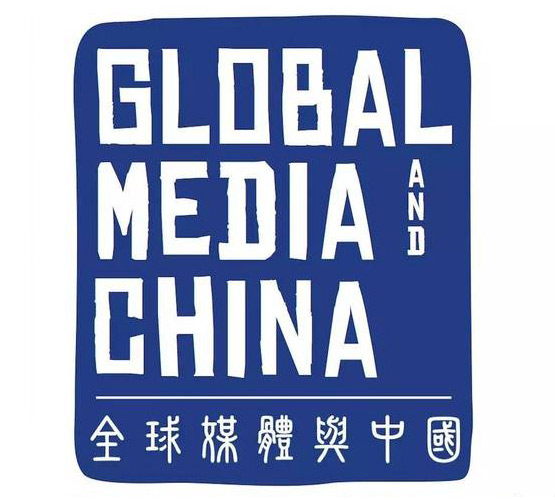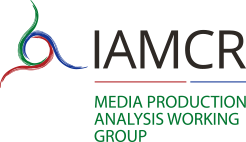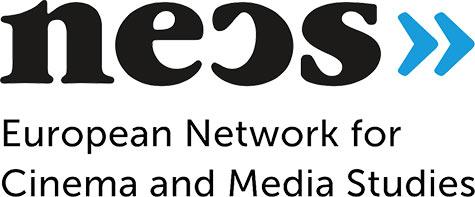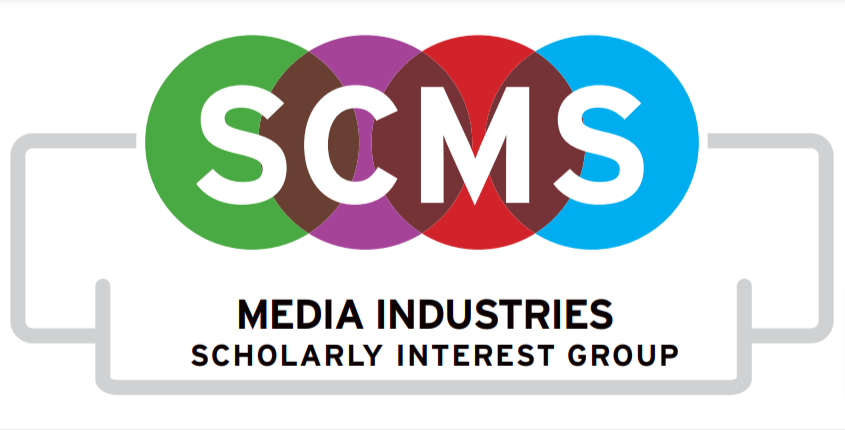




About the Conference
Who We Are
Media Industries 2024 provides a meeting ground for all forms of media industries research.
The conference focuses on the industrial practices, processes, and existences of media. Across the four days, panel speakers and roundtable participants address the multiplicity of media industries, presenting work engaging with diverse industrial, territorial, and historical contexts.
To energize interdisciplinary discussions, the conference maintains an open research agenda, showcasing work emerging from across various intellectual and methodological traditions in media industries scholarship.
Media Industries 2024 builds on the success of the 2018 inaugural conference Media Industries: Current Debates and Future Directions. Covid lockdowns unfortunately led to cancellation of Media Industries 2020: Global Currents and Contradictions. After the smaller scale, thematically focused conference, Locating Media Industries: Cities, Spaces, Places, in June 2023, we are very pleased to mark the return of the full conference in April 2024.
Read moreOur Partners
AG Medienindustrien, Gesellschaft für Medienwissenschaft (GFM)
Founded in 2012, the media industries workgroup (Arbeitsgruppe Medienindustrien) within the German Society for Media Studies (GfM) is engaged in organising conferences, publications, and research networks specifically related to media industries research. It is the first dedicated work group of its kind in the German-language countries and currently is led by Lies van Roessel and Florian Krauß. Know More
Screen Industries Special Interest Group, British Association of Film, Television and Screen Studies (BAFTSS)
Members of the Screen Industries Special Interest Group (SISIG) consider that the profound changes in the creative industries and their importance to public policy make industry-focussed research an important loci requiring specific and sustained critical engagement. SISIG will work to reflect, promote and advance industry-focused research within film, television and screen studies, both historical and contemporary, by providing a forum for interdisciplinary communication and exchange, and a platform for the dissemination of cutting edge scholarship. Know More
Media Industries and Cultural Production Section, European Communication Research and Education Association (ECREA)
The purpose of the ECREA Media Industries and Cultural Production Section is to provide a professional forum for the presentation, dissemination, analysis and discussion of all aspects of research related to media, creative and cultural industries, and to questions of media and cultural production. ECREA is the main European organisation for media and communication research, with nearly 3,000 individual members. Know More
European Media Management Association (EMMA)
’emma’ is Europe’s most established academic association in the field of media management. The association supports advancement in research, scholarship, and industry relations with academia throughout Europe and with regards to Europe. EMMA’s flagship publication, the Journal of Media Business Studies, publishes original scholarly articles that apply business theories to the examination of media and media industries respectively. Know More
Global Media and China journal
Global Media and China (GCH) is a peer-reviewed, open access SAGE journal, which provides a dedicated, interdisciplinary forum for international research on communication and media with a focus on China. This journal is the official journal of the Communication University of China. Know More
Media Production Analysis Working Group, International Association for Media and Communication Research (IAMCR)
The Media Production Analysis Working Group of the IAMCR provides a venue for researchers of media production in various genres and across different media with a focus on multiple technologies, organisational contexts and genres to grasp the internal and external dynamics of media production processes. IAMCR is a worldwide professional organisation in the field of media and communication research. Its members promote global inclusiveness and excellence within the best traditions of critical scholarship in the field.” Know More
Media Industry Studies Interest Group, International Communication Association (ICA)
ICA’s Media Industry Studies Interest Group (ICAMIS) exists to promote research and teaching practice on the history, organization, structure, economics, management, production processes and cultural forms, and the societal impact of media industries from a variety of theoretical, empirical, and cultural perspectives. Among other things, members study: the relationship between government and industry; the intersection of audience and industry; audiences as consumers; the business of media; production and creative labour; ownership structure; and content diversity from a range of micro and macro-levels. Know More
Media Industries journal
Media Industries is a peer-reviewed, open-access journal that supports critical studies of media industries, institutions, and policies worldwide. The journal, which launched in 2014, represents an international collaboration among nine universities on four different continents. Administrative and editorial processes are managed by leading faculty members from these institutions. Know More
Screen Industries Work Group, European Network for Cinema and Media Studies (NECS)
The Screen Industries Work Group (SIWG) brings together researchers examining the practices, structures, organization, and dynamics shaping the film, television, gaming and digital media industries. Our members have research and teaching interests relating to a full range of screen industries and institutions in all international territories, and with how those industries operate at local, national, regional or global levels of analysis in all historical periods. SIWG welcomes intellectual diversity and so does not advocate any single approach to the study of screen industries but instead encourages research and teaching that is continually open to, and strengthened by, multi- and inter-disciplinary perspectives. Know More
Media Industries Scholarly Interest Group, Society for Cinema and Media Studies (SCMS)
It is the aim of the Media Industries Scholarly Interest Group (MISIG) promotes research and teaching directed at cultivating knowledge of the industrial and institutional conditions which shape and define the financing, regulation, production, reproduction, dissemination, promotion, presentation or consumption of media products and services. Analysis of the media industries and institutions invites a range of critical or conceptual frameworks, and research by members of MISIG includes critical engagement with matters of cultural labour, industry structures, media markets, creative and working practices, media law (e.g. competition, intellectual property, or tax), policy formation, and environmental issues (e.g. electronic waste). Know More


Register for the conference
Hosting Committee

Sarah Atkinson
Sarah Atkinson is Professor of Screen Media at King's College London, Editor of Routledge Resources Online: Screen Studies and co-editor of Convergence: The International Journal of Research into New Media Technologies. She is currently an AHRC Research, Development and Engagement Fellow (2023-2024). Sarah has published widely on the film, cinema and screen industries including extensive work into the Live Cinema and Immersive Experience industry. She has led numerous funded projects examining the impacts of emerging technologies on these domains. Sarah adopts practice-based methodologies through the creation of her own original works which include video essays, an interactive documentary, immersive experiences, and short films.

Orçun Can
Orçun Can is a writer and lecturer in Digital Economy at King’s College London. His research focuses on narrative forms in television in the age of streaming and interactive television. He has developed a formal analytical tool, the STNA Model that allows to map out narrative structure in multiple episodes or seasons of television shows together. He is currently developing the MSc Digital Economies programme at KCL.

Virginia Crisp
Virginia Crisp is Reader in Media Industries and Cultures, and Head of the Department of Culture, Media, and Creative Industries, at King's College London. She is the author of numerous publications about formal and informal media circulation. She is also the co-founder and director (with Gabriel Menotti) of the Besides the Screen Network (www.besidesthescreen.com) and the co-editor (also with Menotti) of Practices of Projection: Histories and Technologies (2020) and Besides the Screen: Moving Images Through Promotion, Distribution and Curation (2015).

Matthew Hilborn
Matthew Hilborn is Research Associate in Culture, Media and Creative Industries at King’s College London. His monograph, Film Comedy and Spain: Humour, Genre, and the Nation (2024), will shortly be published by Legenda (Oxford), as will his co-authored book on the history of visual representations of Ophelia, Misleading Ophelia: Transferrals from Literature, Painting, and Film, published by Cambridge Scholars (Newcastle-upon-Tyne). He is currently postdoctoral researcher on the AHRC project Screen Encounters with Britain: What Do Young Europeans Make of Britain and its Digital Screen Culture? (2022-24).

Nessa Keddo
Nessa Keddo is a Senior Lecturer in Culture, Media and Creative Industries at King’s College London. Her research explores the experiences of Black and racialised workers in the promotional industries, and more recently how algorithmic tools are manipulated by the sector for commercial gain. She is co-author of Race and Racism in the Cultural and Creative Industries (2024) and is co-investigator for the AHRC funded project Transforming the Gap: Inclusive Digital Arts and Humanities Research Skills. Dr Keddo has run several events bringing policy makers, academics and industry experts together to critically interrogate diversity practice across the creative industries.
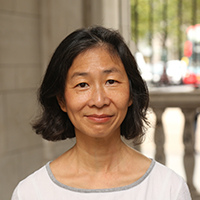
Leung Wing-Fai
Leung Wing-Fai is Reader in Cultural and Media Industries at King’s College London. Her research on East Asian film and media, gender and sexual identities, and cultural and creative labour has been published in the Journal of Chinese Cinemas and the Canadian Journal of Film Studies. Her monographs include Migration and Identity in British East and Southeast Asian Cinema (2023) and Multimedia Stardom in Hong Kong: Image, Performance and Identity (2014). Fai has co-edited East Asian Cinemas (2008), East Asian Film Stars (2014) and a special issue ‘Transformations of the Chinese Film Industries’ (2019) for the Journal of Chinese Cinemas.

Lisa Lin
Lisa Lin is Lecturer in Screen Industries and Cultures at King’s College London. She is the author of Convergent Chinese Television Industries (2022). Previously, Lisa worked as a documentary producer in the UK, Singapore and China, and her credits include Matter Patterns (2014), I Wouldn’t Go in There season 2 (2015), G-Force (2016), Last Breath (2017), The Truth About Fake News (2018), and Frontline Medics Diaries (2020). She has taught at Royal Holloway - University of London, University of Kent and Anglia Ruskin University, and was the principal investigator for the GCRF-funded project Environmental Documentary as Visual Evidence on Social Injustice Behind Air Pollution (2019-2020).
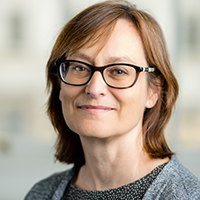
Jeanette Steemers
Jeanette Steemers is Professor of Culture, Media and Creative Industries at King’s College London. After working for London research company, CIT Research, and international children’s content distributor HIT Entertainment (Bob the Builder, Thomas the Tank Engine), she rejoined academia in 1993. Her research interests include media industries, media policy, international distribution, public service media and children’s media. Her work has been funded by the AHRC, British Academy and Leverhulme Trust. Her many publications include Selling Television (2004), Creating Preschool Television (2010) and Screen Media for Arab and European Children (2019 with Naomi Sakr).
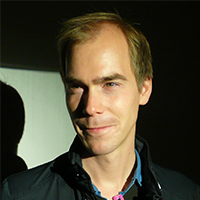
Jaap Verheul
Jaap Verheul is a Senior Teaching Fellow in Film at the University of Southampton. His research focuses on transnational flows of film and television in European media industries, and how these affect the cultural politics on the screen. Among other topics, he has written on the monolingualism of Flemish cinema, the co-production of a European heritage brand, and the failed construction of star personas. Jaap recently edited a collection on The Cultural Life of James Bond: Specters of 007 (2020), and is currently completing his monograph on the regulation of European screen industries after 1989.
Sarah Atkinson
Sarah Atkinson is Professor of Screen Media at King's College London, Editor of Routledge Resources Online: Screen Studies and co-editor of Convergence: The International Journal of Research into New Media Technologies. She is currently an AHRC Research, Development and Engagement Fellow (2023-2024). Sarah has published widely on the film, cinema and screen industries including extensive work into the Live Cinema and Immersive Experience industry. She has led numerous funded projects examining the impacts of emerging technologies on these domains. Sarah adopts practice-based methodologies through the creation of her own original works which include video essays, an interactive documentary, immersive experiences, and short films.
Orçun Can
Orçun Can is a writer and lecturer in Digital Economy at King’s College London. His research focuses on narrative forms in television in the age of streaming and interactive television. He has developed a formal analytical tool, the STNA Model that allows to map out narrative structure in multiple episodes or seasons of television shows together. He is currently developing the MSc Digital Economies programme at KCL.
Virginia Crisp
Virginia Crisp is Reader in Media Industries and Cultures, and Head of the Department of Culture, Media, and Creative Industries, at King's College London. She is the author of numerous publications about formal and informal media circulation. She is also the co-founder and director (with Gabriel Menotti) of the Besides the Screen Network (www.besidesthescreen.com) and the co-editor (also with Menotti) of Practices of Projection: Histories and Technologies (2020) and Besides the Screen: Moving Images Through Promotion, Distribution and Curation (2015).
Matthew Hilborn
Matthew Hilborn is Research Associate in Culture, Media and Creative Industries at King’s College London. His monograph, Film Comedy and Spain: Humour, Genre, and the Nation (2024), will shortly be published by Legenda (Oxford), as will his co-authored book on the history of visual representations of Ophelia, Misleading Ophelia: Transferrals from Literature, Painting, and Film, published by Cambridge Scholars (Newcastle-upon-Tyne). He is currently postdoctoral researcher on the AHRC project Screen Encounters with Britain: What Do Young Europeans Make of Britain and its Digital Screen Culture? (2022-24).
Nessa Keddo
Nessa Keddo is a Senior Lecturer in Culture, Media and Creative Industries at King’s College London. Her research explores the experiences of Black and racialised workers in the promotional industries, and more recently how algorithmic tools are manipulated by the sector for commercial gain. She is co-author of Race and Racism in the Cultural and Creative Industries (2024) and is co-investigator for the AHRC funded project Transforming the Gap: Inclusive Digital Arts and Humanities Research Skills. Dr Keddo has run several events bringing policy makers, academics and industry experts together to critically interrogate diversity practice across the creative industries.
Leung Wing-Fai
Leung Wing-Fai is Reader in Cultural and Media Industries at King’s College London. Her research on East Asian film and media, gender and sexual identities, and cultural and creative labour has been published in the Journal of Chinese Cinemas and the Canadian Journal of Film Studies. Her monographs include Migration and Identity in British East and Southeast Asian Cinema (2023) and Multimedia Stardom in Hong Kong: Image, Performance and Identity (2014). Fai has co-edited East Asian Cinemas (2008), East Asian Film Stars (2014) and a special issue ‘Transformations of the Chinese Film Industries’ (2019) for the Journal of Chinese Cinemas.
Lisa Lin
Lisa Lin is Lecturer in Screen Industries and Cultures at King’s College London. She is the author of Convergent Chinese Television Industries (2022). Previously, Lisa worked as a documentary producer in the UK, Singapore and China, and her credits include Matter Patterns (2014), I Wouldn’t Go in There season 2 (2015), G-Force (2016), Last Breath (2017), The Truth About Fake News (2018), and Frontline Medics Diaries (2020). She has taught at Royal Holloway - University of London, University of Kent and Anglia Ruskin University, and was the principal investigator for the GCRF-funded project Environmental Documentary as Visual Evidence on Social Injustice Behind Air Pollution (2019-2020).
Jeanette Steemers
Jeanette Steemers is Professor of Culture, Media and Creative Industries at King’s College London. After working for London research company, CIT Research, and international children’s content distributor HIT Entertainment (Bob the Builder, Thomas the Tank Engine), she rejoined academia in 1993. Her research interests include media industries, media policy, international distribution, public service media and children’s media. Her work has been funded by the AHRC, British Academy and Leverhulme Trust. Her many publications include Selling Television (2004), Creating Preschool Television (2010) and Screen Media for Arab and European Children (2019 with Naomi Sakr).
Jaap Verheul
Jaap Verheul is a Senior Teaching Fellow in Film at the University of Southampton. His research focuses on transnational flows of film and television in European media industries, and how these affect the cultural politics on the screen. Among other topics, he has written on the monolingualism of Flemish cinema, the co-production of a European heritage brand, and the failed construction of star personas. Jaap recently edited a collection on The Cultural Life of James Bond: Specters of 007 (2020), and is currently completing his monograph on the regulation of European screen industries after 1989.
Venue
Bush House, the conference venue, has multiple wings and entrances. When arriving at the conference, make sure to therefore enter via the South Wing entrance. Here you’ll enter the Bush House Arcade where you’ll find the registration desk.





